Related Research Articles

Idaho is a landlocked state in the Mountain West subregion of the United States. It shares a small portion of the Canada–United States border to the north, with the province of British Columbia. It borders Montana and Wyoming to the east, Nevada and Utah to the south, and Washington and Oregon to the west. The state's capital and largest city is Boise. With an area of 83,570 square miles (216,400 km2), Idaho is the 14th largest state by land area. With a population of approximately 1.8 million, it ranks as the 13th least populous and the 6th least densely populated of the 50 U.S. states.
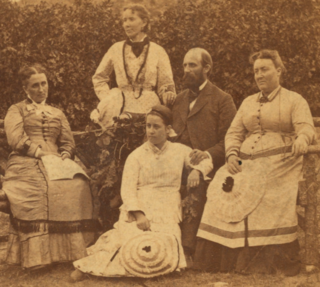
Polygamy was practiced by leaders of the Church of Jesus Christ of Latter-day Saints for more than half of the 19th century, and practiced publicly from 1852 to 1890 by between 20 and 30 percent of Latter-day Saint families.

Frank Forrester Church III was an American politician and lawyer. A member of the Democratic Party, he served as a United States senator from Idaho from 1957 until his defeat in 1980. He was the longest serving Democratic senator from the state and the only Democrat from the state who served more than two terms in the Senate. He was a prominent figure in American foreign policy and established a reputation as a member of the party's liberal wing.

George Laird Shoup was an American politician who served as the first governor of Idaho, in addition to its last territorial governor. He served several months after statehood in 1890 and then became one of the state's first United States Senators.

William Edgar Borah was an outspoken Republican United States Senator, one of the best-known figures in Idaho's history. A progressive who served from 1907 until his death in 1940, Borah is often considered an isolationist, because he led the Irreconcilables, senators who would not accept the Treaty of Versailles, Senate ratification of which would have made the U.S. part of the League of Nations.
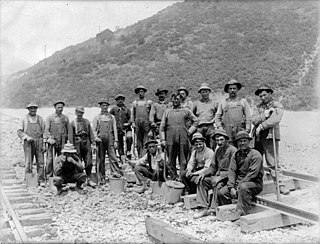
The Liberal Party was a political party established in the latter half of the 1800s in Utah Territory before the national Democrats and Republicans established themselves in Utah in the early 1890s.
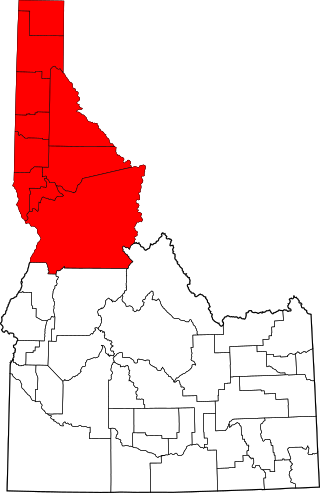
The Idaho panhandle—locally known as North Idahoor Northern Idaho—is a salient region of the U.S. state of Idaho encompassing the state's 10 northernmost counties: Benewah, Bonner, Boundary, Clearwater, Idaho, Kootenai, Latah, Lewis, Nez Perce, and Shoshone. The panhandle is bordered by the state of Washington to the west, Montana to the east, and the Canadian province of British Columbia to the north. The Idaho panhandle, along with Eastern Washington, makes up the region known as the Inland Northwest, headed by its largest city, Spokane, Washington.
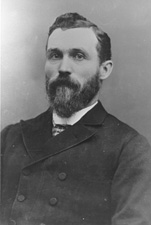
William John McConnell was the third governor of Idaho from 1893 until 1897. He had previously represented the new state as one of its first United States Senators; Idaho achieved statehood in July 1890.

The Reed Smoot hearings, also called Smoot hearings or the Smoot Case, were a series of Congressional hearings on whether the United States Senate should seat U.S. Senator Reed Smoot, who was elected by the Utah legislature in 1903. Smoot was an apostle in the Church of Jesus Christ of Latter-day Saints, one of the top 15 leaders of the church. The hearings began in 1904 and continued until 1907, when the Senate voted. The vote fell short of a two-thirds majority needed to expel a member so he retained his seat.

Fred Thomas Dubois was a controversial American politician from Idaho who served two terms in the United States Senate. He was best known for his opposition to the gold standard and his efforts to disenfranchise Mormon voters.

The Idaho Democratic Party is the affiliate of the Democratic Party in the U.S. state of Idaho.

John Baldwin Neil was an American military officer and politician who served as Governor of Idaho Territory from 1880 to 1883.
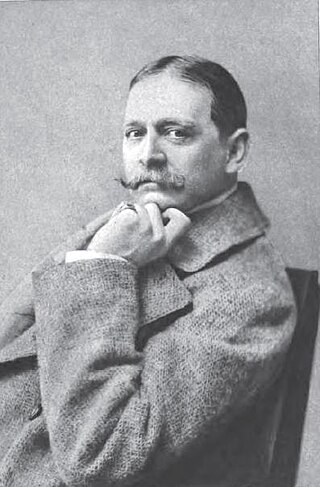
William Malcolm Bunn was an American newspaperman and Governor of Idaho Territory from 1884 to 1885. He began his political career holding a series of local and state offices while serving as a member of a local political machine. After purchasing a Philadelphia newspaper, he traded positive coverage for political favors. At the same time Bunn cultivated an active social life and became known for his after dinner speeches. During his tenure as governor, Bunn was caught between competing factions within his party fighting over polygamy and concerns with the territory's Mormon population.

Possibly as early as the 1830s, followers of the Latter Day Saint movement, were practicing the doctrine of polygamy or "plural marriage". After the death of church founder Joseph Smith, the doctrine was officially announced in Utah Territory in 1852 by Mormon leader Brigham Young. The practice was attributed posthumously to Smith and it began among Mormons at large, principally in Utah where the Church of Jesus Christ of Latter-day Saints had relocated after the Illinois Mormon War.
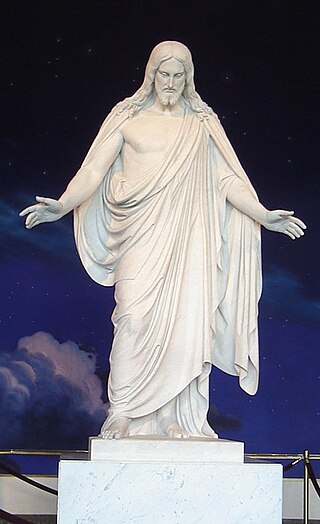
The following outline is provided as an overview of and a topical guide to the Church of Jesus Christ of Latter-day Saints.

Early in its history, the Church of Jesus Christ of Latter-day Saints had a series of negative encounters with the federal government of the United States. This led to decades of mistrust, armed conflict, and the eventual disincorporation of the church by an act of the United States Congress. The relationship between the church and the government eventually improved, and in recent times LDS Church members have served in leadership positions in Congress and held other important political offices. The LDS Church becomes involved in political matters if it perceives that there is a moral issue at stake and wields considerable influence on a national level with over a dozen members of Congress having membership in the church in the early 2000s, and about 80% of Utah state lawmakers identifying as LDS.

The 1900 United States presidential election in Utah took place on November 6, 1900, as part of the 1900 United States presidential election held in each of the forty-five contemporary states. State voters chose three representatives, or electors to the Electoral College, who voted for president and vice president.

The 1896 United States presidential election in Idaho took place on November 3, 1896. All contemporary 45 states were part of the 1896 United States presidential election. State voters chose three electors to the Electoral College, which selected the president and vice president.

The 1936 Idaho gubernatorial election was held on November 3. Vying for an open seat, Democratic nominee Barzilla Clark defeated Republican nominee Frank Stephan with 57.19% of the vote.

The 1934 Idaho gubernatorial election was held on November 6. Incumbent Democrat C. Ben Ross defeated Republican nominee Frank Stephan with 54.58% of the vote.
References
- 1 2 3 "Idaho Historical Periods" (PDF). Boise, Idaho: Idaho State Historical Society. 1976. Retrieved 26 February 2017.
- ↑ "Idaho's Dirty Secret: Anti-Mormonism". NewWest. 15 May 2007. Retrieved 26 February 2017.
- 1 2 "Idaho history: Fred Dubois was a U.S. marshal and two-term U.S. senator". Boise, Idaho: Idaho Statesman. 23 August 2015. Retrieved 26 February 2017.
- ↑ Dubois, Frederick (1922). Autobiography. Idaho State Historical Society. p. 25.
{{cite book}}: CS1 maint: location missing publisher (link) - ↑ "Borah wins long fight". Spokane, Washington: Spokane Daily Chronicle. 18 August 1907. Retrieved 26 February 2017.